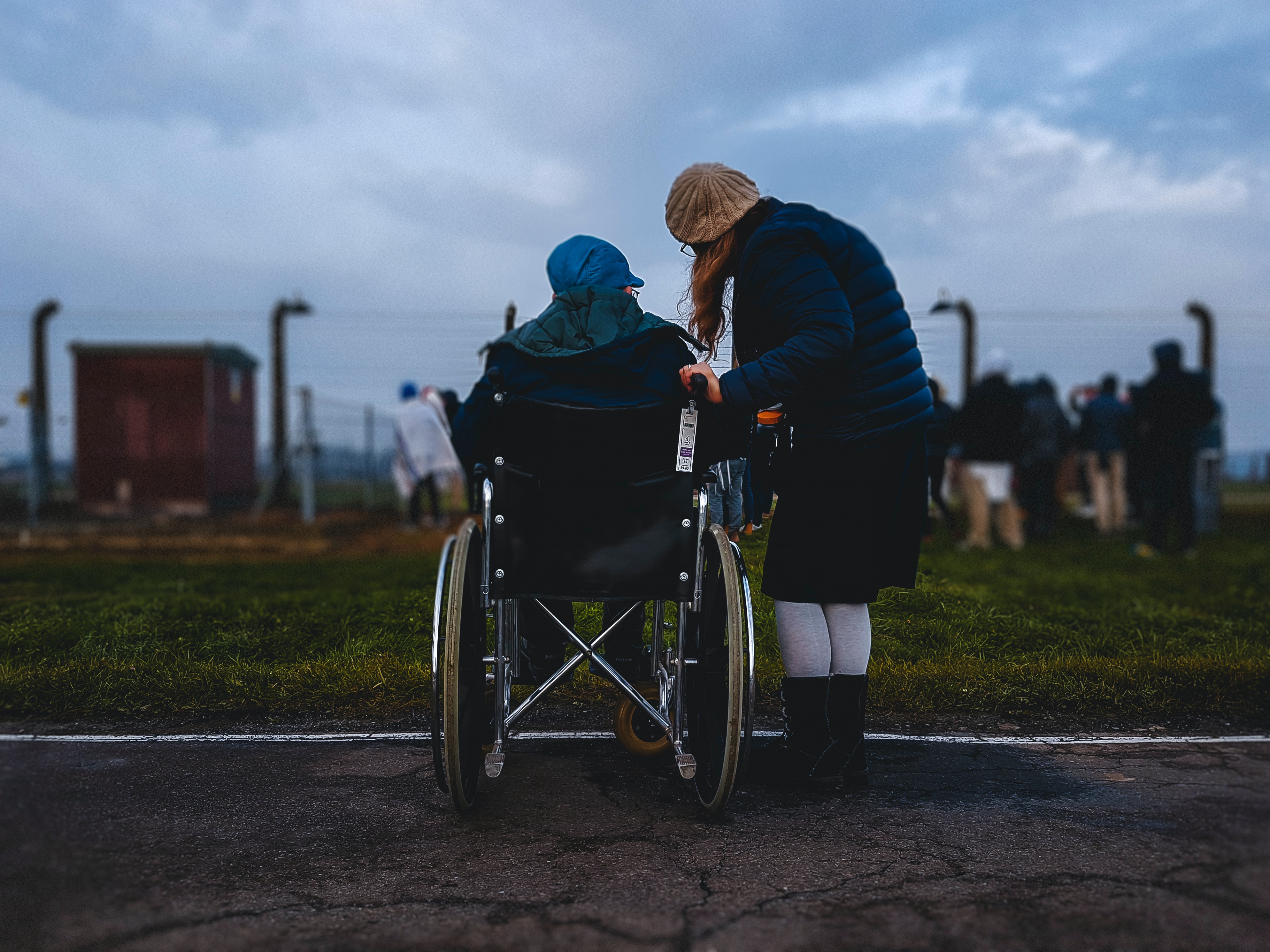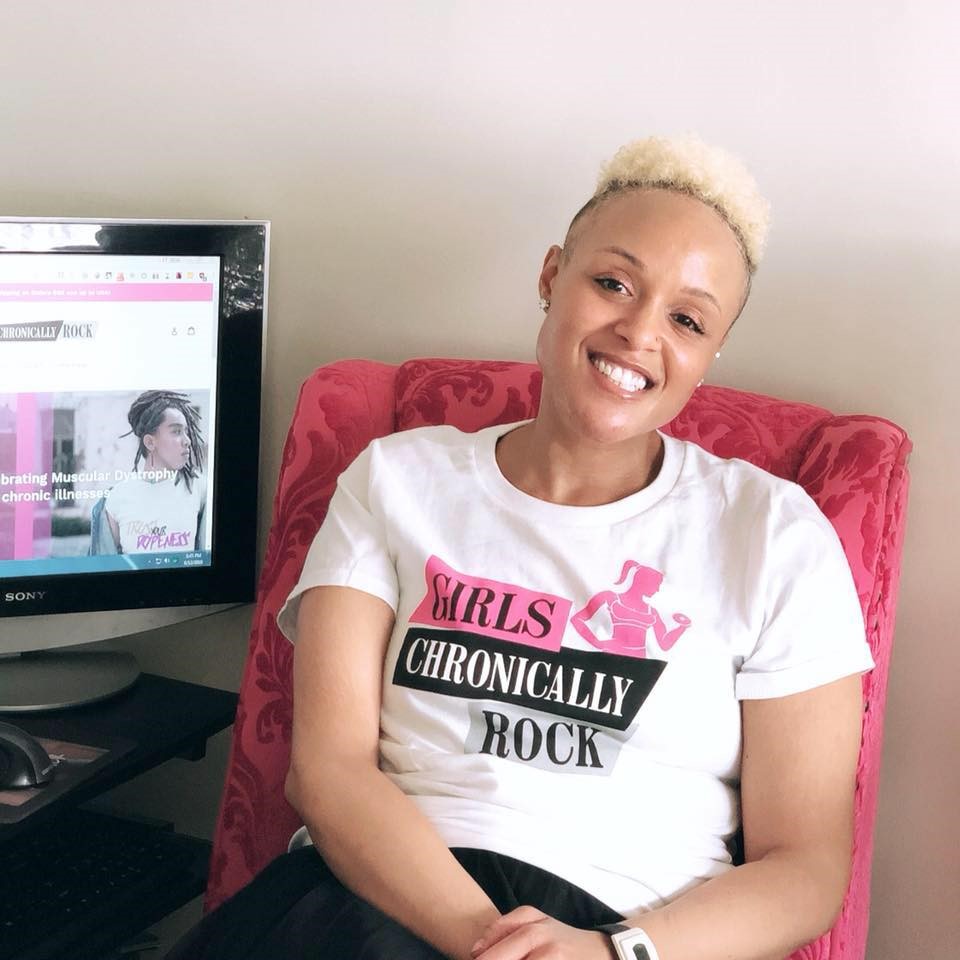The Joys of Having a Personal Care Attendant!?
 One thing about me is I LOVE my space. I always have. My alone time and solitude are so valuable to me. Even back in college, I somehow managed to room alone, experiencing dorm life devoid of roommates. Yet, in 2015, it became evident that my bubble of privacy and solitude was about to be popped.
One thing about me is I LOVE my space. I always have. My alone time and solitude are so valuable to me. Even back in college, I somehow managed to room alone, experiencing dorm life devoid of roommates. Yet, in 2015, it became evident that my bubble of privacy and solitude was about to be popped.
A while after my diagnosis, I noticed the expected decline of my limbs. My legs weakened and became more unpredictable. My shoulders operated at less than 50%. My hands stumbled around without precision. It was beginning to be difficult to do “normal” tasks: putting on my clothes, doing my makeup, and tidying up my apartment proved laborious.
I’d heard tons of stories about something called a PCA, a personal care assistant. Some were good, some weren’t. All made me feel queasy. The thought of it screamed INVASION OF PRIVACY and sparked a feeling of dehumanization and ineptitude. My growing discomfort and lack of ease in tasks, however, pushed me to begin the search.
I’ve always been independent – wanting to figure out solutions for myself, long before my Muscular Dystrophy diagnosis and adulthood. But here I was in my early twenties, having to find dependency on what seemed like a babysitter.
I started my search using ads and asking around in the building I live in. I’d already moved into an assisted-living community on the fifth floor. Applicants would travel up the elevator, passing hand sanitizing stations to knock on my apartment door. I’d learn about their qualifications and take their references in exchange for a list of my needs and desires in the role.
The process was exhausting. Sometimes, the bad ones were easy to weed out. They’d show up late, even to the interview. Other times, I’d learn after they were hired that we weren’t a good match. They’d cancel last minute. Engage in illegal activity (I’ve even once had to call the cops!). They’d repeatedly place things where they didn’t belong.
It was more than an annoyance or an inconvenience. It was literally, detrimental to my day.

My PCAs hold a very important role in my life, each and every day. In the mornings, they invite themselves into my home around 8:30. They get me out of bed, help me with my morning routine of brushing my teeth, washing my face, and showering. I can no longer dry myself when I wash, so I have to trust them to towel me off and lotion my body, before helping me put my clothes on. They fix my meals – usually only something small for breakfast.
I’m now with a person in my most intimate moments: in the morning when I’ve got crust in my eyes and bed-breath; when I’ve got to use the bathroom and while I’m cleaning in my body; to make sure I eat breakfast. This isn’t the solitude I’ve always known and loved.
As I get comfortable in front of my laptop, answering emails and attending to Girls Chronically Rock business. Talk shows often keep me company as I fade into my tasks of the day. My PCA usually leaves around 1 p.m. This is about the only time I seem to get alone time outside of the time when I am asleep.
Somewhere between 4:30 and 5:30, she’s back again making sure I’ve eaten dinner and transferring me into my pajamas for bed. I am able to use the bathroom one last time before she moves me from my chair to my bed. She grabs whatever snacks or tools I may want to have with me before she leaves. This will be the last time I can move before morning.
It’s hard being so reliant on others, especially when it’s the only option. Sometimes, language barriers create obstacles that make the dependency that much more difficult. Imagine having to ask for something to eat or drink and the person is having trouble understanding your basic needs. I can’t do many things on my own – making it vital that I have a PCA that I can trust. It’s an intimate role that involves precision and professionalism, for sure.
Even now, I tend to be even more on alert, hoping, and trusting that they’ve been operating safely out and about during the corona pandemic. I’m more afraid of getting infected from any contact they’ve had outside my home or if there’s an oversight in how they’re caring and keeping for themselves.
But I know that I have no choice. I rely on them for just about everything I do, so I must push through with trust. And give up my beloved solitude. Sometimes, I just wish I could have a week alone to myself – just to dodge the fear and reliance of others in my space. Yet, that’s not my life, at least not now. I pray that one day, something magical will take place: a cure, a treatment, or a way for me to return to INDEPENDENCE!
Muscular dystrophy has taught me many things about myself and the world around me. When it comes to this, it’s taught me the beauty in embracing and trusting others. For some of us, we have no choice.
 About
About
Keisha Greaves was born and raised in Cambridge, Massachusetts. She graduated from Cambridge Rindge and Latin High School in 2003. After graduating from college, she went on to Bay State College and studied Fashion Design and received her Associate's Degree in Fashion Design and Retailing in May 2005. In September 2005, she decided to continue to study Fashion Design at Framingham State College and received her Bachelor’s in Science in Fashion Design and Retailing. After obtaining an Associate’s Degree and Bachelor’s Degree in Fashion Design she now attends Cambridge College Master’s Program, where she will receive her Master’s Degree in Business Management.
Keisha’s favorite designers are Kimora Lee Simmons, Betsey Johnson, David Josef, Denise Hajjaar, Gucci, Burberry, and many more. She designs for young women ages 18 -30 and for young toddlers, infants through age 5. Her designs are very sophisticated, unique and a perfect fit. She also does personal shopping for any age at any store location, such as Saks, Neiman Marcus, Nordstrom, private designers, and many more. Keisha’s ideal goal is to open her own clothing line and open her own boutique named after the late Grandmother that passed in 1992 from Ovarian Cancer. A percentage of Keisha’s designs will go towards the Ovarian Cancer Association
Specialties: Fashion Designing for young women for any age and doing personal shopping/stylist for many different clients.






